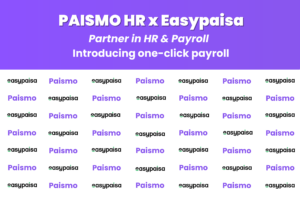Effective human resource management hinges on a critical foundation: comprehensive and well-managed employee data in today's dynamic work environment. This data, housed within detailed employee profiles, fuels strategic decision-making, fosters a positive employee experience, and ensures compliance with regulations.
What are Employee Profiles, and Why Do They Matter?
An employee profile is a centralized repository of information about an individual employee. It goes beyond basic contact details and encompasses a wide range of data points, including:
- Personal information (name, address, emergency contact)
- Job details (position, department, reporting structure, salary)
- Skills and qualifications (education, certifications, work experience)
- Performance evaluations and development plans
- Benefits enrollment and leave history
- Disciplinary records and legal documents (when applicable)
Benefits of Effective Employee Profile and Data Management
Maintaining accurate and up-to-date employee profiles offers significant advantages for organizations of all sizes:
- Strategic Workforce Planning: HR professionals can develop targeted talent acquisition and development strategies by analyzing employee data (e.g., skills gaps and upcoming retirements).
- Improved Decision-Making: Data-driven insights from employee profiles inform compensation, training programs, and succession planning decisions.
- Enhanced Employee Experience: Accurate profiles ensure employees receive the correct benefits, compensation, and communication relevant to their role.
- Streamlined Compliance: Comprehensive profiles facilitate reporting for legal and regulatory purposes (e.g., I-9 verification).
- Increased Efficiency: Well-organized employee data reduces time spent searching for information and minimizes manual data entry errors.
Challenges of Employee Profile and Data Management
While the benefits are clear, managing employee data effectively can be challenging. Here are some common hurdles:
- Data Inaccuracy: Inconsistent data entry or outdated information can lead to inaccuracies and unreliable reporting.
- Data Silos: Employee data scattered across different systems creates difficulty in accessing a complete employee picture.
- Security Concerns: Ensuring data privacy and security requires robust security protocols and compliance with data protection regulations.
Best Practices for Effective Employee Profile and Data Management
Here are some key strategies to ensure your employee profile and data management system are efficient and secure:
- Standardize Data Collection: Develop clear guidelines for what data is collected and how it should be entered.
- Invest in HR Software: Consider implementing an HR information system (HRIS) to centralize and manage employee data.
- Employee Self-Service: Empower employees to update their basic information within the system.
Paismo HR recognizes the importance of employee data and offers a comprehensive HR solution that includes robust employee profile management features.
Paismo HR streamlines data collection, ensures secure storage and empowers HR professionals to leverage valuable insights for strategic decision-making.










